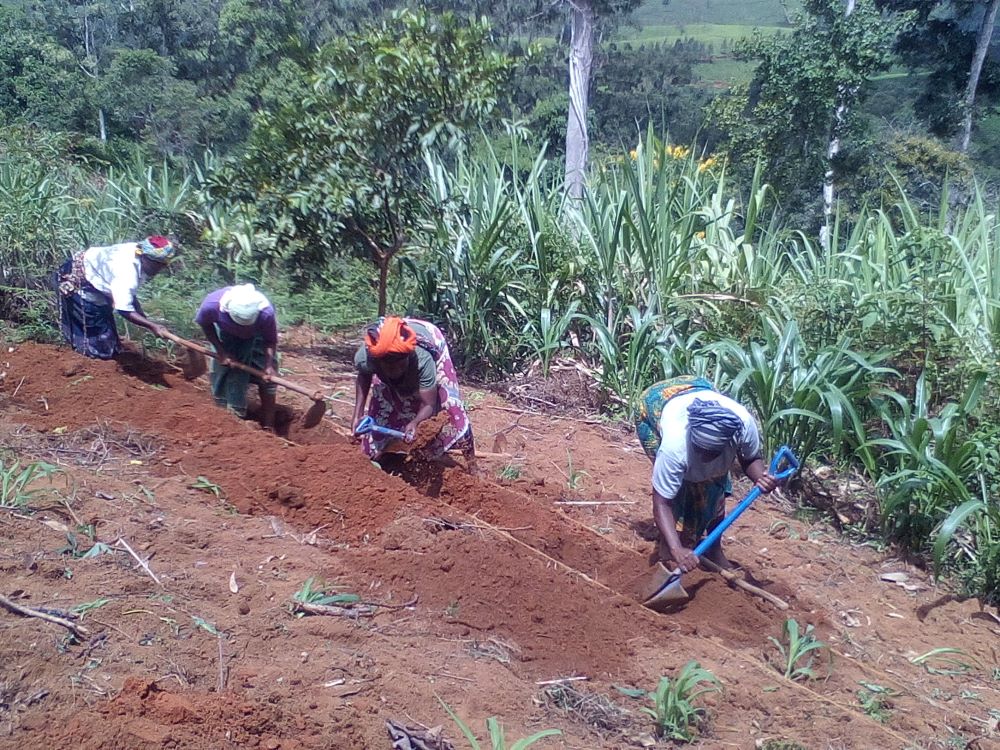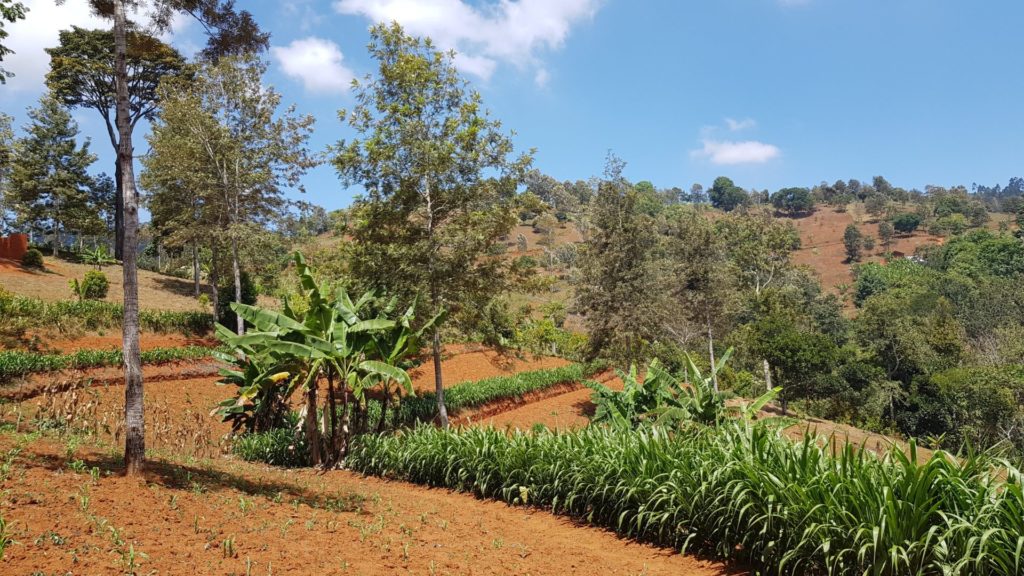By Mantoe Phakathi
Farmers are already taking the initiative to adapt to climate change even before the implementation of climate adaptation programmes.
These are some of findings of research conducted by the Agricultural and Food Systems Resilience: Increasing Capacity & Advising Policy programme (GCRF-AFRICAP), which recognised that farmers from Muheza District in Tanzania are using diverse and innovative farming practices.

Sylvester Mziray, the Land-Use Planning Officer under the Agriculture Department in Muheza District Council, was part of the team implementing the ‘Integrated Approaches for Climate Change Adaptation in the East Usambara Mountains’ (IACCA). This is a four-year development programme, funded through the European Union’s Global Climate Change Alliance which aimed to support rural households in Tanzania to adapt to climate change and alleviate poverty.
As part of a broader suite of activities, the programme trained farmers on various climate-smart agriculture techniques, including establishing tree nurseries, soil and water conservation practices and producing drought-resistant crop varieties.
Mziray explained that farmers were applying animal manure and practising agroforestry as part of adaptation strategies, even before the IACCA programme was implemented.
He added that farmers were also growing high-value cash crops such as cloves, cinnamon, black pepper and cardamom, which were sold to buy food. This helped build resilience as households were less reliant on rain-fed food crops which are vulnerable to climate change.
“These spice crops grow from trees, which are responsible for also trapping carbon,” said, Mziray, adding that, “Trapping carbon is important for mitigating climate change.”
As a result of the IACCA project, farmers received additional skills and now understand climate change better and how to adapt to it, he said.

This, according to Dr. Harriet Smith, a researcher from the University of Leeds and part of the AFRICAP team, is evidence that innovation is not a one-way process but occurs in a cyclical and dynamic manner involving a diverse array of stakeholders.
The objective of Smith’s research was to understand how farmers involved in the IACCA programme learn new agricultural practices, how they are engaged or excluded in learning processes and what innovation approaches are effective and inclusive.
The research considers innovation processes as a combination of three interconnected components:
- Hardware – comprises the use of technologies or practices, such as genetic modification, biochar, precision fertiliser and irrigation, conservation agriculture and agroforestry.
- Software – includes knowledge, processes and models of thinking, teaching and learning, language and communication.
- Orgware – describes the ordering of formal and informal institutions and organisations.
However, as Smith notes, development programmes like the IACCA are implemented in places where change is already happening.
“One of the important things that these programmes need to consider in their design is the context in which they’re taking place,” Smith said explaining that context matters because it determines how people respond to and engage with programme activities.
“For example, if a programme is taking place when there has been an implementation of another before, with disappointing results, farmers may not be keen to participate,” Smith said cautioning that ignoring local social dynamics can further exclude vulnerable groups and widen inequalities.
What the programme seeks to achieve could therefore be undermined if the context is not considered, and may lead to unintended, potentially negative, consequences.
The research forms part of the AFRICAP programme implemented by the University of Leeds together with the Food Agriculture Natural Resources Policy Analysis Network (FANRPAN) in partnership with civil society organisations in the four project countries; Malawi, South Africa, Tanzania and Zambia.
